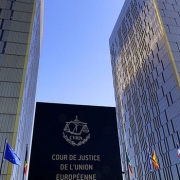UPDATE ON VISA DELAYS – ATIF AND MAHMOOD CASE
UPDATE – A few months ago, we published a blog regarding the considerable delays in the processing of EUTR visas for the family members of EU citizens. In Atif and Mahmood, several applicants challenged the legality of such delays.
In Atif and Mahmood, the High Court in Ireland ruled in favour of the applicants indicating that any delay over six months in processing visa applications was too long. However, the Minister appealed this decision to the Court of Appeals in Ireland. In order to make a decision in this matter, the Court of Appeals referred to the European Court of Justice (ECJ) for guidance.
Specifically, the Court of Appeals sought a preliminary ruling on how to interpret Article 5(2) of Directive 2004/38/EC of the European Parliament and of the Council of 29 April 2004. This article addresses the free movement rights of EU citizens and their families and requires the Member State “to issue a visa as quickly as possible to the spouse and family members of a Union citizen exercising free movement rights.”
The Court of Appeals set forth these questions to the ECJ for preliminary ruling:
- Does a Member State breach the requirement of Article 5(2) of Directive 2004/38/EC when the delays in processing an application for EUTR visas for the family members of EU citizens exceed 12 months?
- Does a Member State breach the requirement of Article 5(2) of Directive 2004/38/EC when delays in processing are due to ensuring that the application is not fraudulent or an abuse of rights, for instance, a marriage of convenience?
- Does a Member State breach the requirement of Article 5(2) of Directive 2004/38/EC when delays in processing are due to background and security checks on applicants coming from third world countries for security purposes?
- Does a Member State breach the requirement of Article 5(2) of Directive 2004/38/EC when delays in processing are due to a “a sudden and unanticipated surge in such applications coming from certain third countries which are thought to present real security concerns”?
To the above questions, the ECJ has made a decision regarding this matter.
“Since, however, all of the visa applications at issue in the main proceedings were the subject of negative decisions, which were contested by means of court actions which were not upheld, and since the referring court has noted that the Court’s answer can no longer benefit the applicants in the main proceedings, as is clear from paragraphs 18 and 20 of the present order, the dispute in the main proceedings has become devoid of purpose and, consequently, an answer to the questions referred appears to be no longer necessary.”
Since all of the applications in question had already been determined, the ECJ deferred from making a decision in this matter. Essentially, the ECJ determined that issuing a decision in this case would no longer be beneficial to the applicants and therefore there is no point in pursuing the matter further. Thus, the issue of how to interpret Article 5(2) of Directive 2004/38/EC in regard to visa delays remains unresolved.
Read more about visa delays in our full blog here.
Read the full decision in this matter here.

